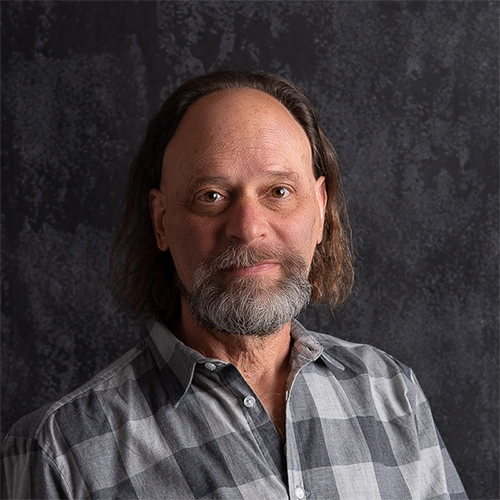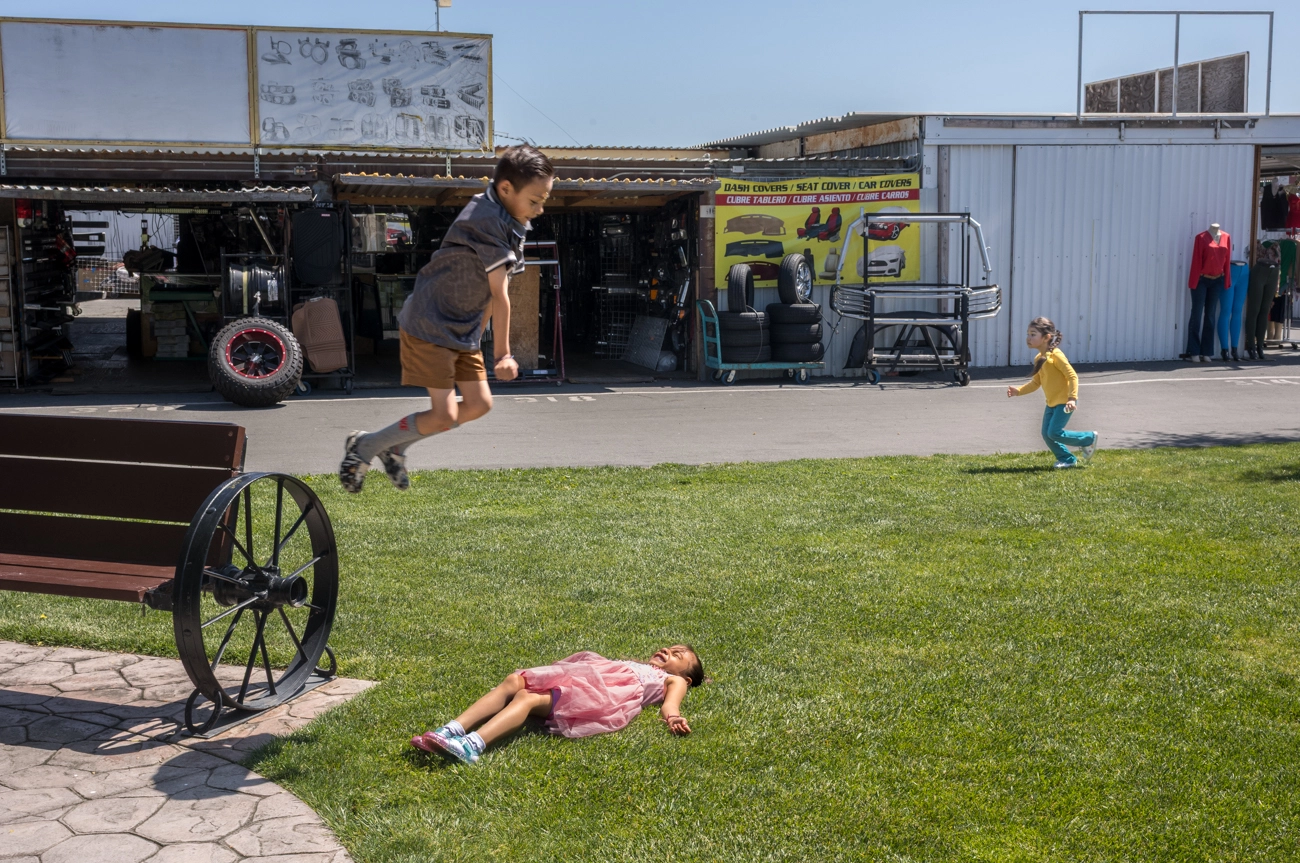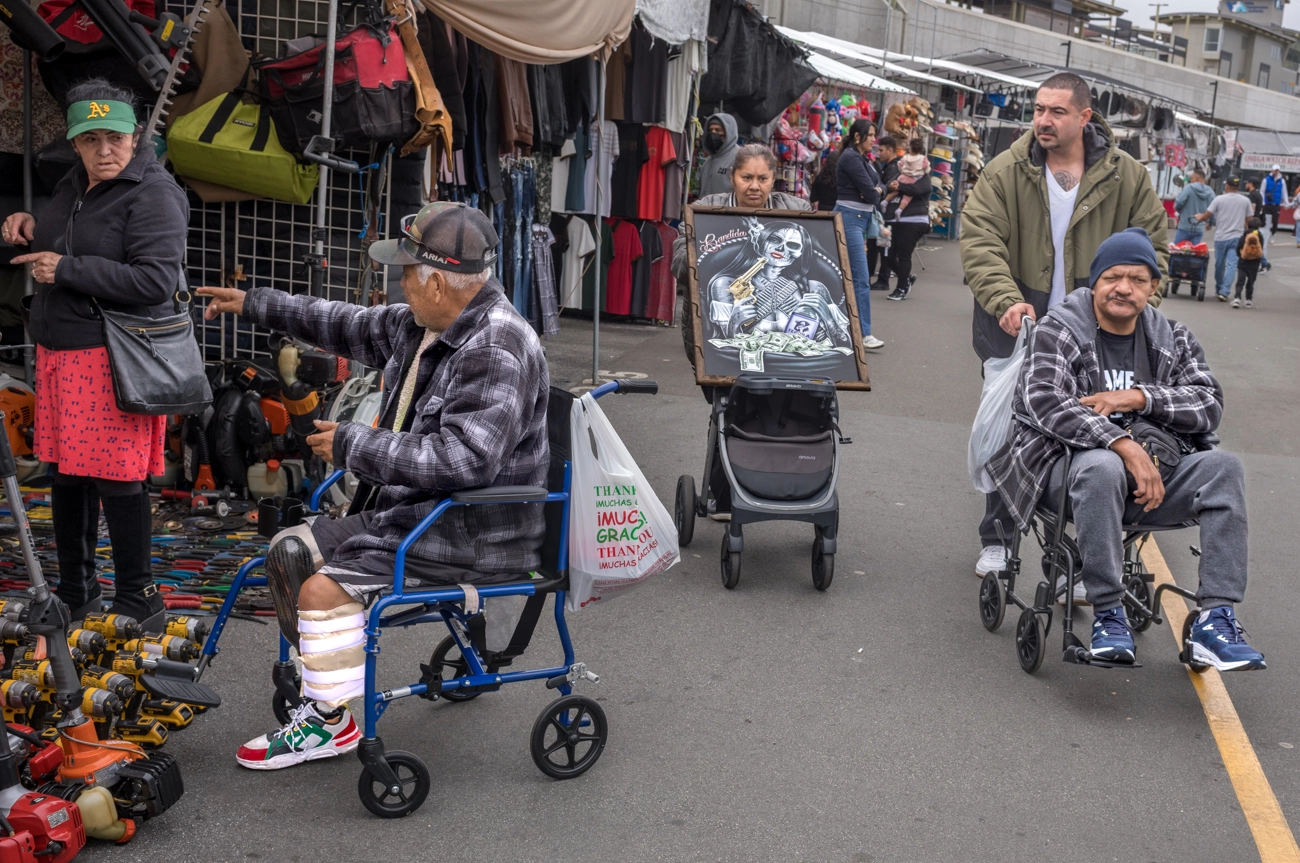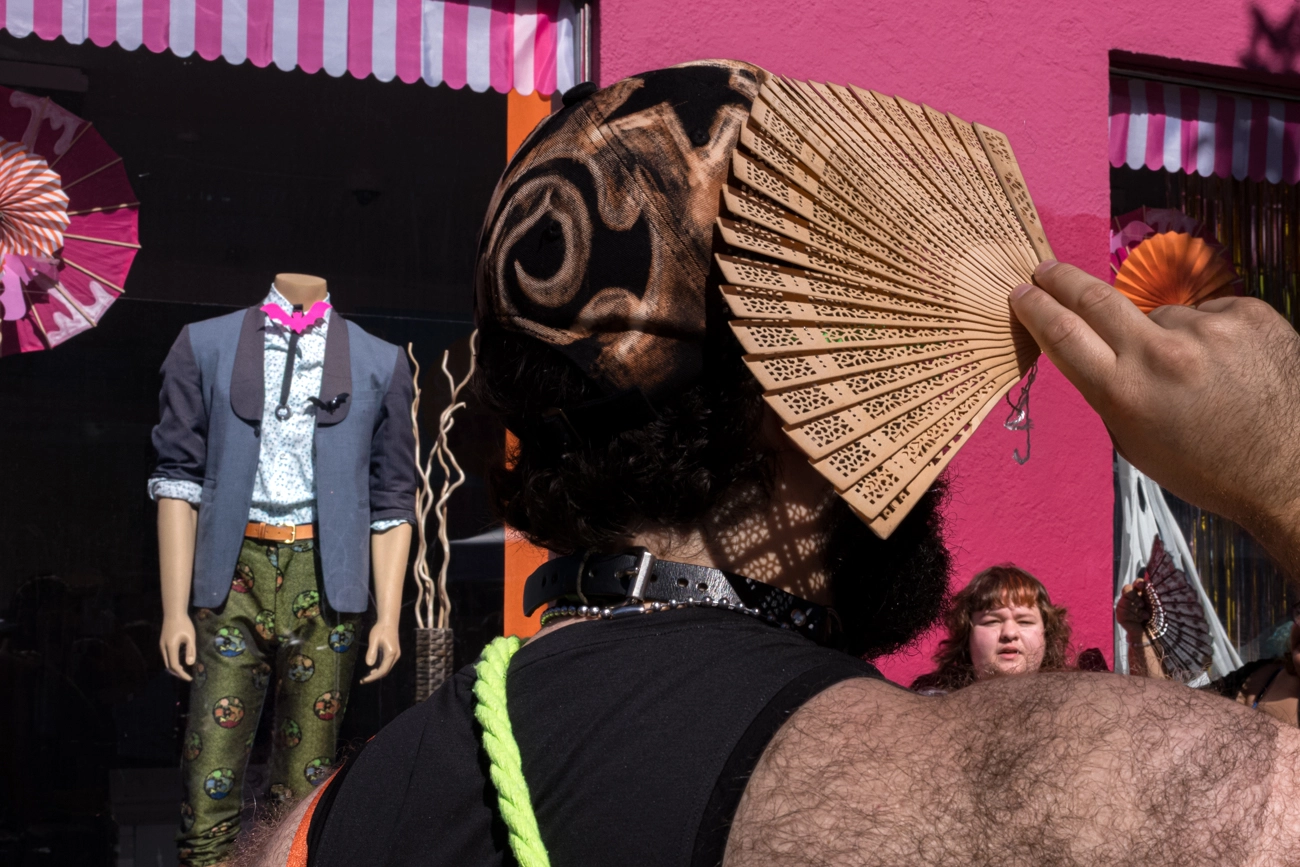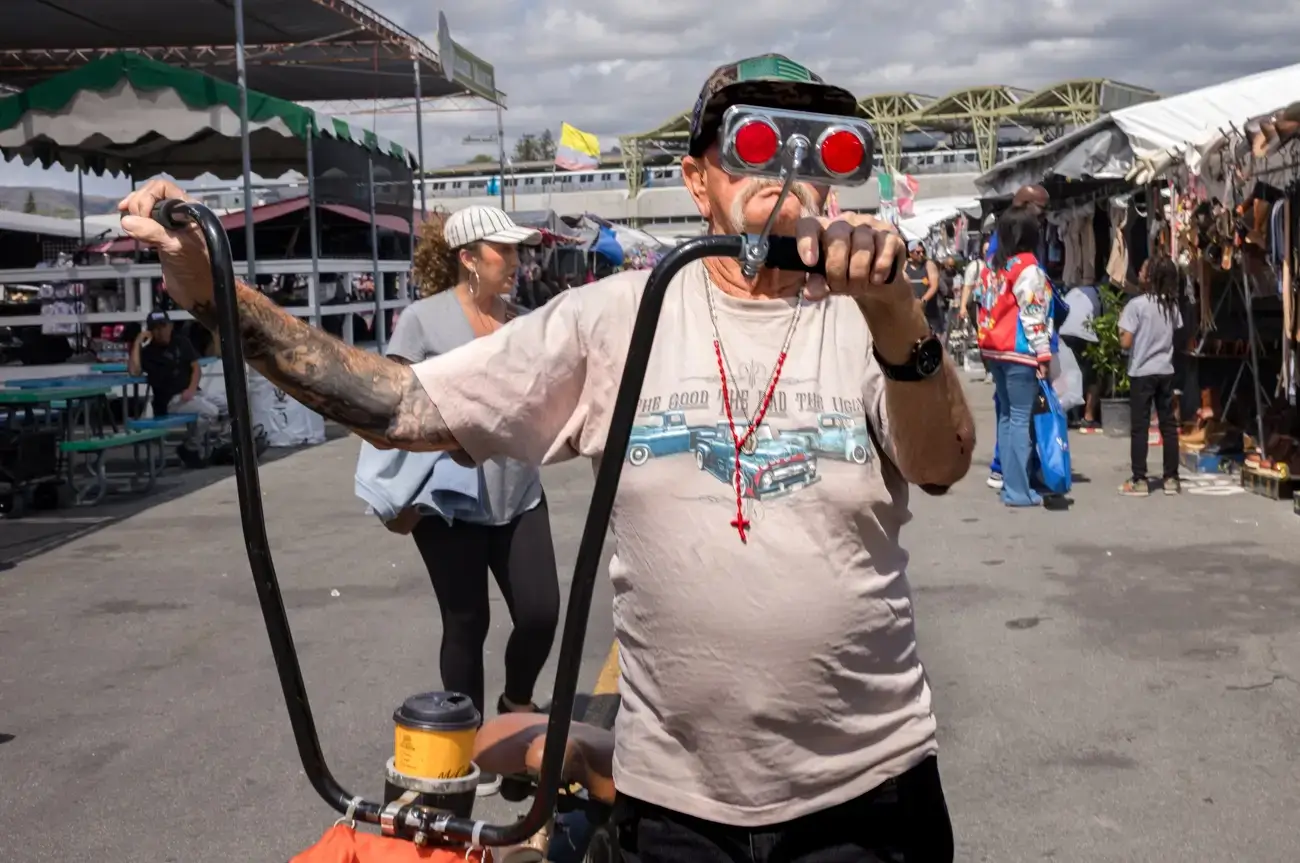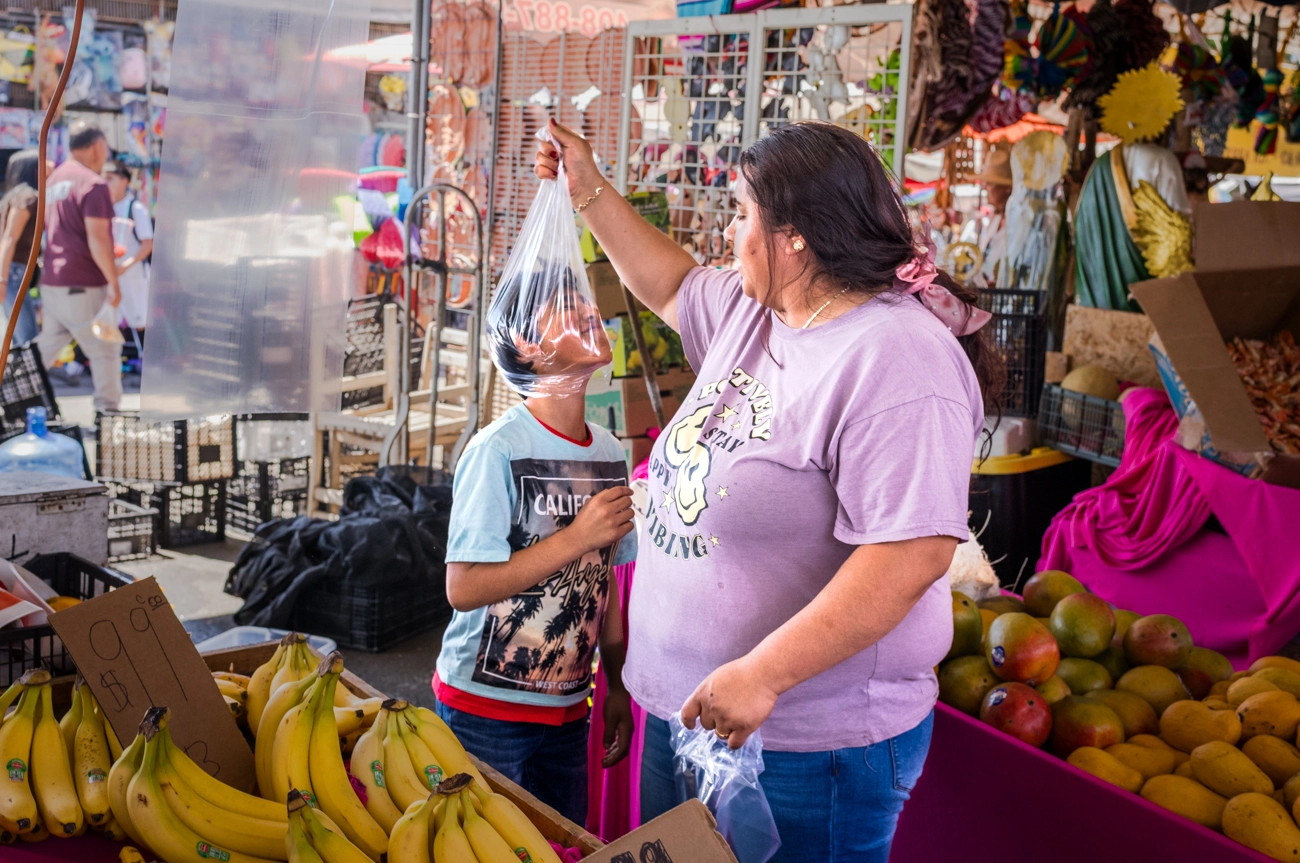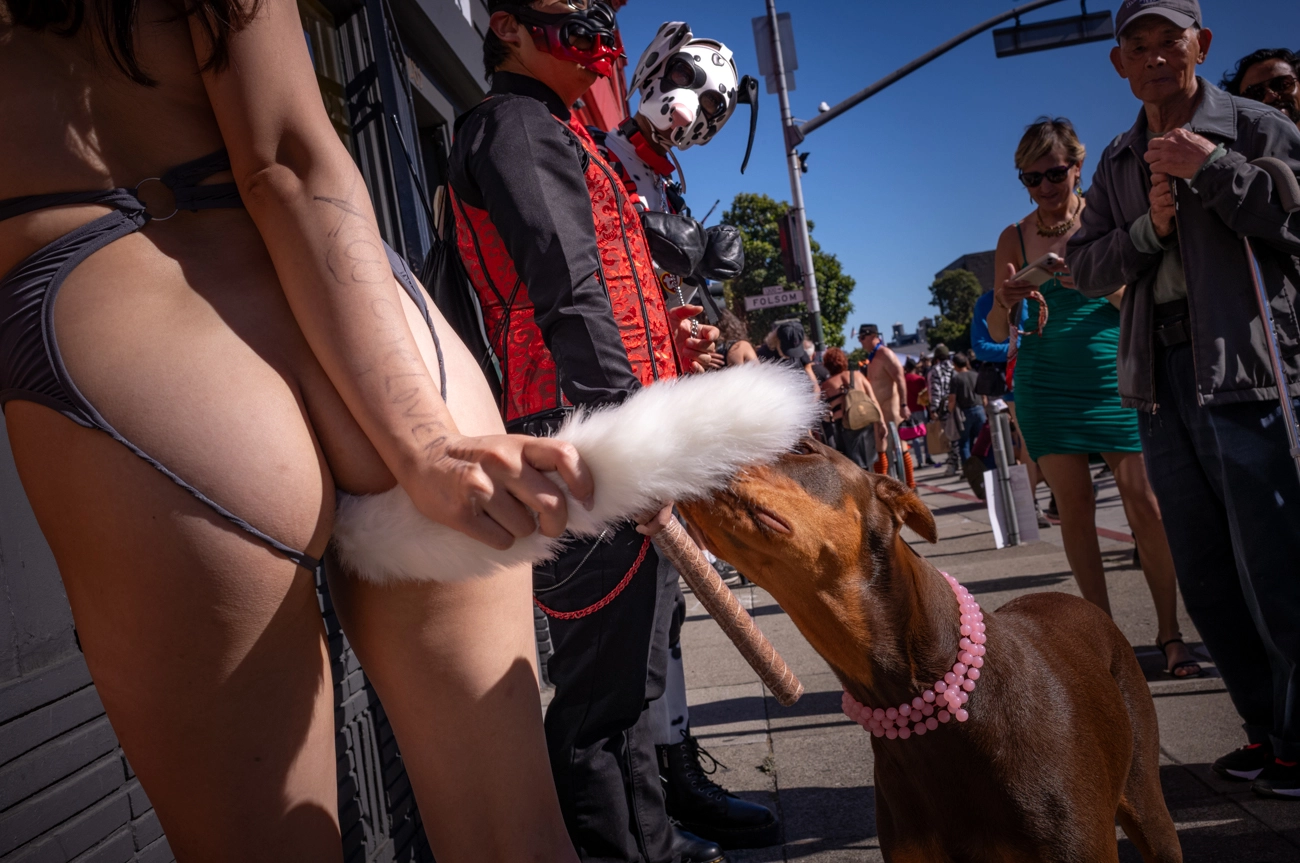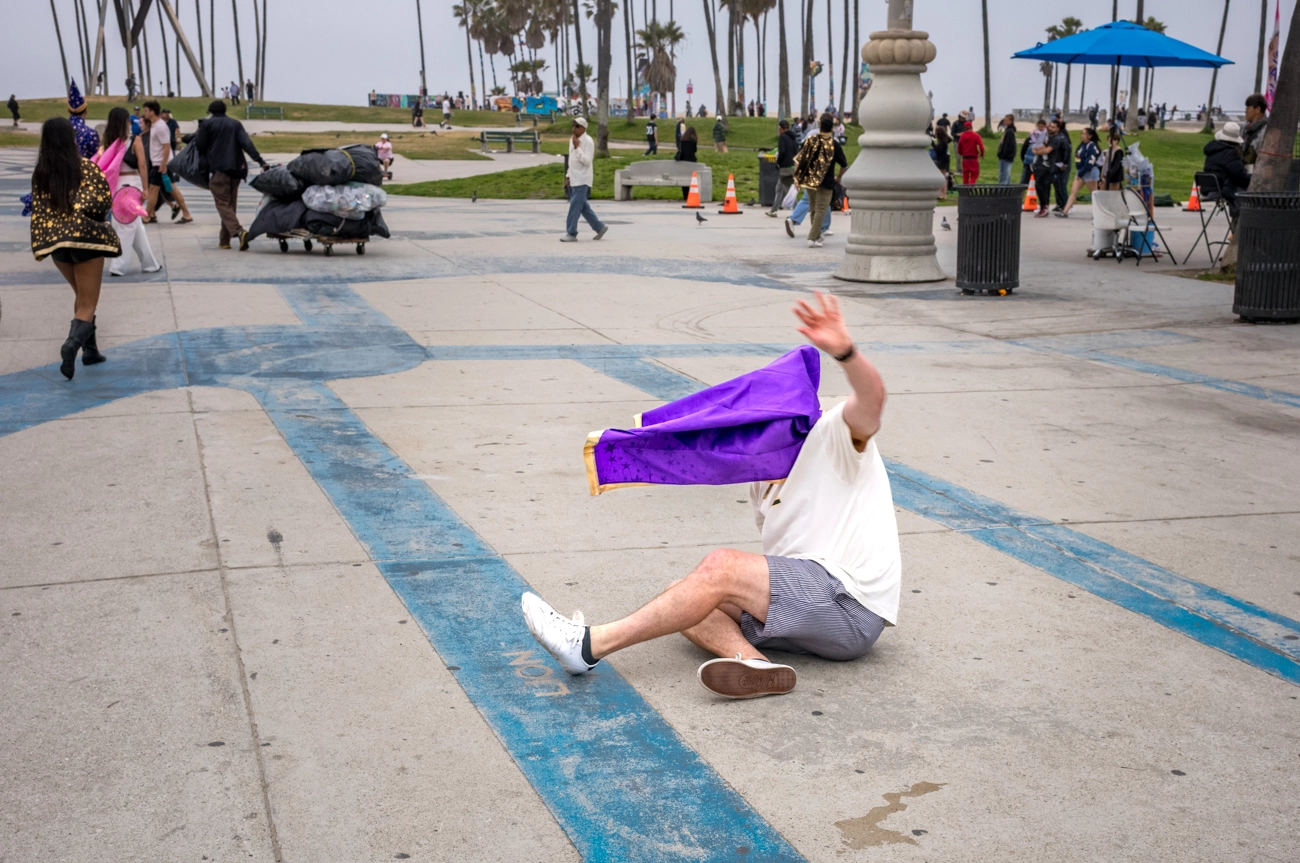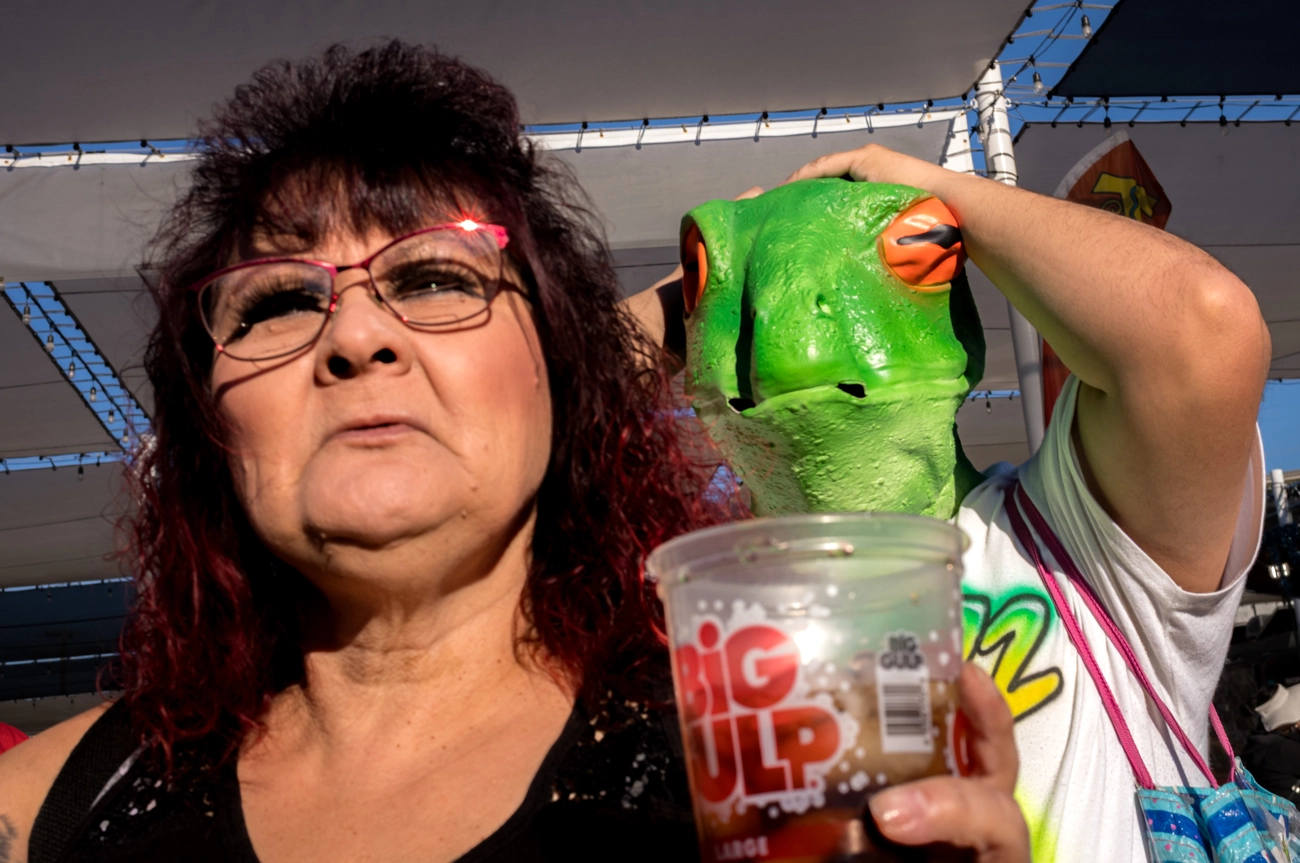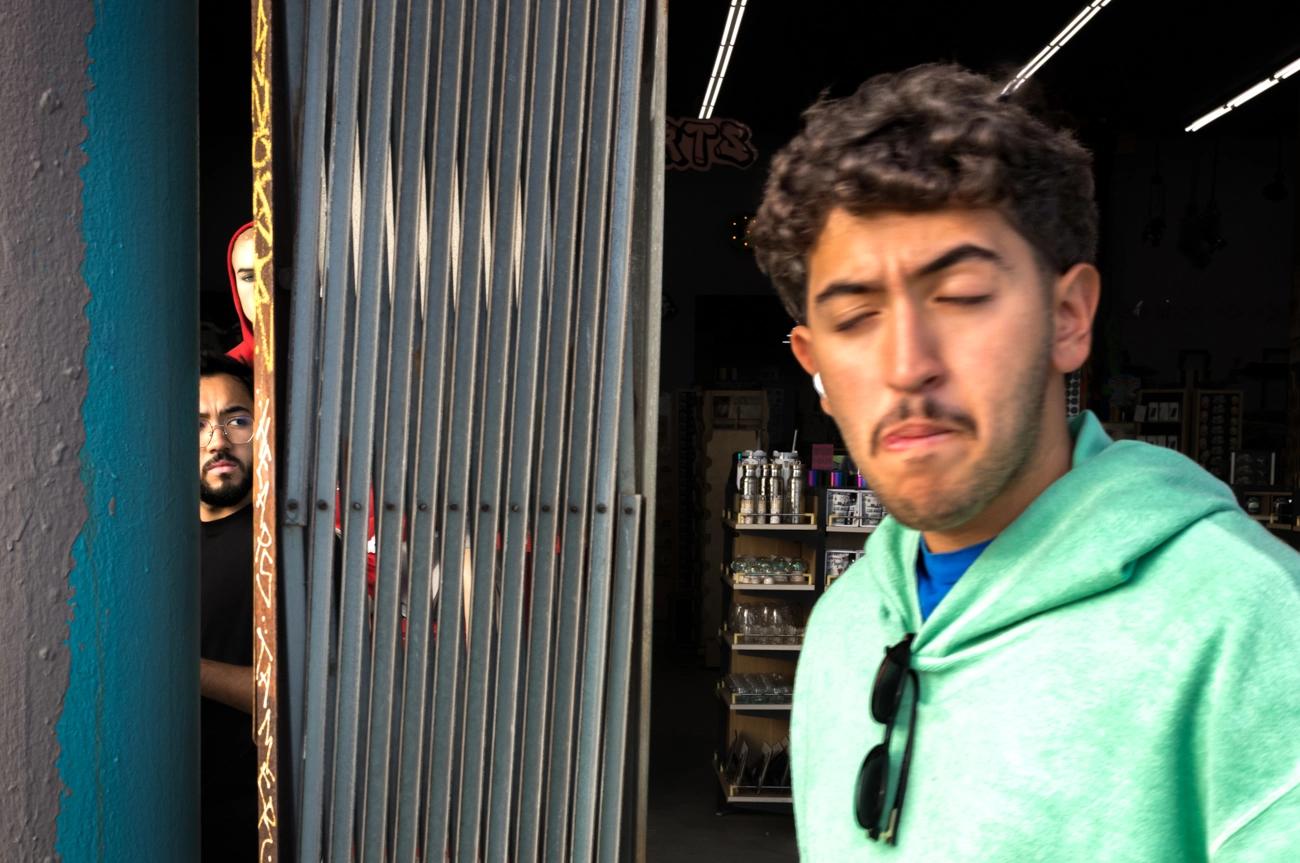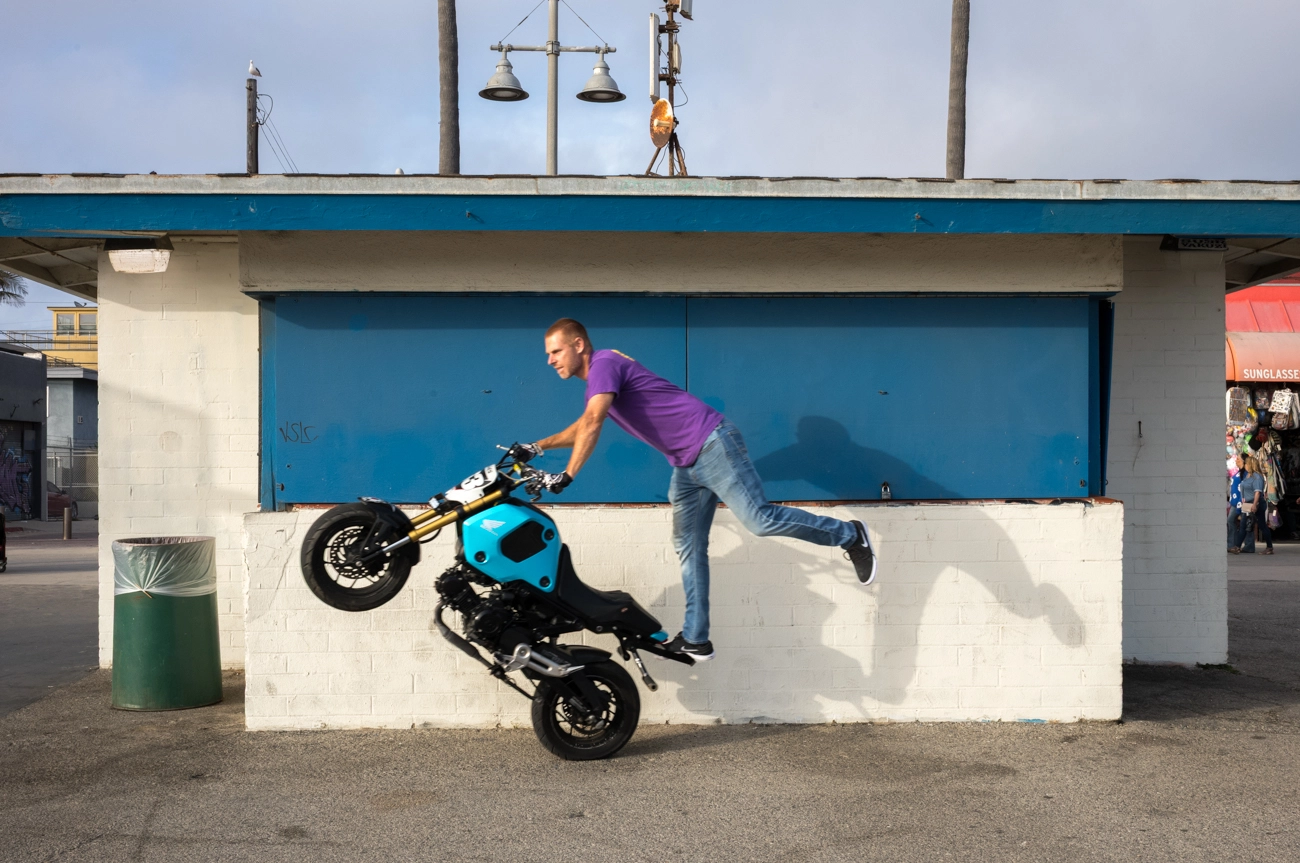Eric is addicted to street photography — and he’s been chasing its highs since 2014. Logging thousands of miles through city streets, he captures quirky, satirical, and often humorous moments that reflect the absurdities of modern urban life. His recent series,
Life Is But a Dream, won him a solo exhibition and challenges viewers to look up from their screens and truly observe the world around them. Through his lens, the ordinary becomes extraordinary — and sometimes, even a wake-up call.
We asked him a few questions:
All About Photo: You’ve mentioned your background as a street mime. How did that experience shape your approach to street photography?
Eric Davidove: My experience as a street mime deeply shaped the way I approach street photography. As a
mime, I had to observe people very closely—facial expressions, subtle gestures, body
language—because my own form of expression was entirely nonverbal. This made me highly
attuned to the unscripted, candid moments that are at the heart of compelling street
photography.
Being on the street also taught me about timing, presence, and empathy. I learned how to
blend into a crowd, sense energy shifts in a public space, and anticipate human interactions,
all of which help me find and capture interesting and unique moments. In a way, I still perform
silently—only now, instead of telling stories with my body, I tell them with my lens.
You’ve walked thousands of miles in urban centers since 2014. What keeps you returning to the streets with your camera?
What keeps me returning to the streets with my camera is the unpredictability of human life
unfolding in public. No matter how many miles I’ve walked or how many photos I’ve taken, the
street is never the same twice. There’s always a new story, a fleeting moment, or a subtle detail
that surprises me. I love the challenge of trying to capture them in a compelling and unique
way.
Walking the streets has become both a meditative practice and a form of research. It keeps me
grounded in reality while also constantly challenging me to see more—more deeply, more
generously, and more creatively. The streets are raw, unscripted, and full of contradictions, and
I’m drawn to that.
How do you define a successful day of shooting, especially when you say it’s not always about getting a good photo?
For me, a successful day of shooting isn’t just about coming home with a ‘good’ photo. It’s
about whether I was fully present — whether I explored the city with curiosity and openness,
paid attention to what was unfolding around me, and acted on the moments that had the
potential to become something interesting.
Some days, I don’t come home with a single keeper, but I’ve had conversations, noticed
something new, or just felt more connected to the rhythm of the street. Those are valuable
days.
A good photo is a gift—but learning to see, to be patient, and to stay engaged even when
nothing obvious is happening… that’s the real success. Over time, that practice sharpens your
eye and deepens your voice as a photographer.
There’s a distinctive quirkiness and humor in your work. Is this something you consciously look for, or does it emerge naturally?
It’s a mix, really. I think I’m naturally drawn to moments that feel a little quirky or quietly
humorous — those are the things that catch my eye when I’m out shooting. Over time I’ve
become more aware that this is part of my visual style, so now I do lean into it a bit more
intentionally. But it still has to emerge from the scene itself — I’m not forcing it or staging it. It’s
about staying open to those spontaneous moments that life hands you.
Why do you think these seemingly inconsequential moments are worth preserving?
Because they’re everywhere and that’s where the magic happens. The small moments, such
as a gesture, a glance, or odd juxtaposition, are usually more interesting than the things we’re
‘supposed’ to pay attention to. I love the accidental comedy and quiet weirdness of everyday
life. Street photography is about noticing the frequently unnoticed moments of the everyday,
and preserving it so we can slow down and really see it.
Do you have any advice for aspiring street photographers who are still finding their voice?
My advice is: walk more than you shoot, and look more than you post. Spend time just being
present in the street, without the pressure to make a perfect photo. Your voice doesn’t come
from your gear or editing style—it comes from what you notice, what you care about, and what
you keep coming back to.
Be patient. At first, you may imitate others, and that’s okay—it’s part of learning. But over time,
start asking yourself why you’re drawn to certain moments or people. What are you trying to
understand about the world, or about yourself? Follow that thread.
